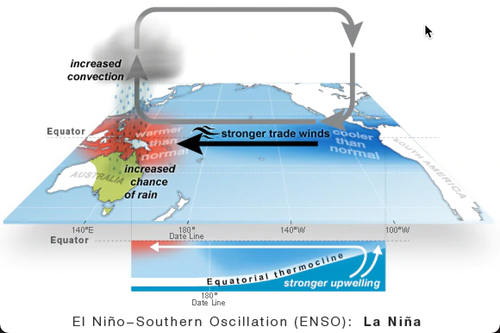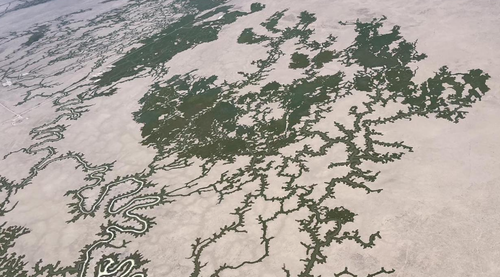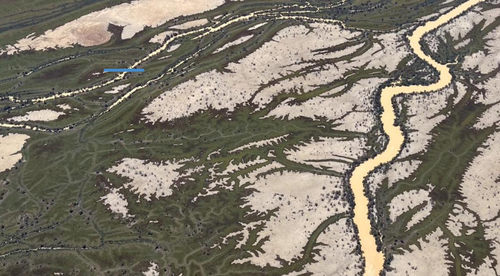
Australia is experiencing the third consecutive year of La Nina -- an oceanic and atmospheric phenomenon that usually brings above-average rainfall to the country. Cooling of the western Indian Ocean is one of the drivers of La Nina and has transformed deserts into wetlands this year.
"With a third consecutive La Nina period on the way for only the fourth time since records began, large parts of Australia have seen unrelenting rainfall with little chance for the ground to dry up," according to the Australian website news.com.au.
Sydney has already exceeded rainfall records dating back more than a century. The recent deluge of wet weather has been a relief for a country battling extreme drought, which sparked intense wildfires in 2019-20.
Rain has transformed deserts into areas overflowing with water in the country's remote central region, especially in Channel Country, Queensland.
One cattle farmer about 300 miles West of Charleville told The Australian he was 'blessed' with rain.
"We couldn't ask for anything better. We're getting good rains at the right time," farmer Nathan Keogh said.
"The stars couldn't have aligned more perfectly. The cattle are fat and the pastures couldn't be better.
"It lifts everybody's spirits. It can be hard out here in drought times, but this is a game-changer. It's a lot easier when it's green."
Another area in Channel Country shows rivers coming to life after all the rainfall.
"The region experiences flooding rains roughly once a decade, which spread across floodplains through Queensland, South Australia and the Northern Territory into Lake Eyre, bringing out some of the most unique wildflower scenery in the country," news.com.au explained.
And mainstream media outlets like WaPo cite researchers who blame "climate change" for Australia's flooding. We will note the UN Office for the Coordination of Humanitarian Affairs, stating: "El Nino and La Nina are naturally occurring climate patterns and humans have no direct ability to influence their onset, intensity or duration."
And for those wondering what type of weather La Nina will bring to the Western Hemisphere ... read "When Can You Expect El Niño And La Niña"
Australia is experiencing the third consecutive year of La Nina — an oceanic and atmospheric phenomenon that usually brings above-average rainfall to the country. Cooling of the western Indian Ocean is one of the drivers of La Nina and has transformed deserts into wetlands this year.
“With a third consecutive La Nina period on the way for only the fourth time since records began, large parts of Australia have seen unrelenting rainfall with little chance for the ground to dry up,” according to the Australian website news.com.au.
Sydney has already exceeded rainfall records dating back more than a century. The recent deluge of wet weather has been a relief for a country battling extreme drought, which sparked intense wildfires in 2019-20.
Rain has transformed deserts into areas overflowing with water in the country’s remote central region, especially in Channel Country, Queensland.
One cattle farmer about 300 miles West of Charleville told The Australian he was ‘blessed’ with rain.
“We couldn’t ask for anything better. We’re getting good rains at the right time,” farmer Nathan Keogh said.
“The stars couldn’t have aligned more perfectly. The cattle are fat and the pastures couldn’t be better.
“It lifts everybody’s spirits. It can be hard out here in drought times, but this is a game-changer. It’s a lot easier when it’s green.”
Another area in Channel Country shows rivers coming to life after all the rainfall.
“The region experiences flooding rains roughly once a decade, which spread across floodplains through Queensland, South Australia and the Northern Territory into Lake Eyre, bringing out some of the most unique wildflower scenery in the country,” news.com.au explained.
And mainstream media outlets like WaPo cite researchers who blame “climate change” for Australia’s flooding. We will note the UN Office for the Coordination of Humanitarian Affairs, stating: “El Nino and La Nina are naturally occurring climate patterns and humans have no direct ability to influence their onset, intensity or duration.”
And for those wondering what type of weather La Nina will bring to the Western Hemisphere … read “When Can You Expect El Niño And La Niña?”







